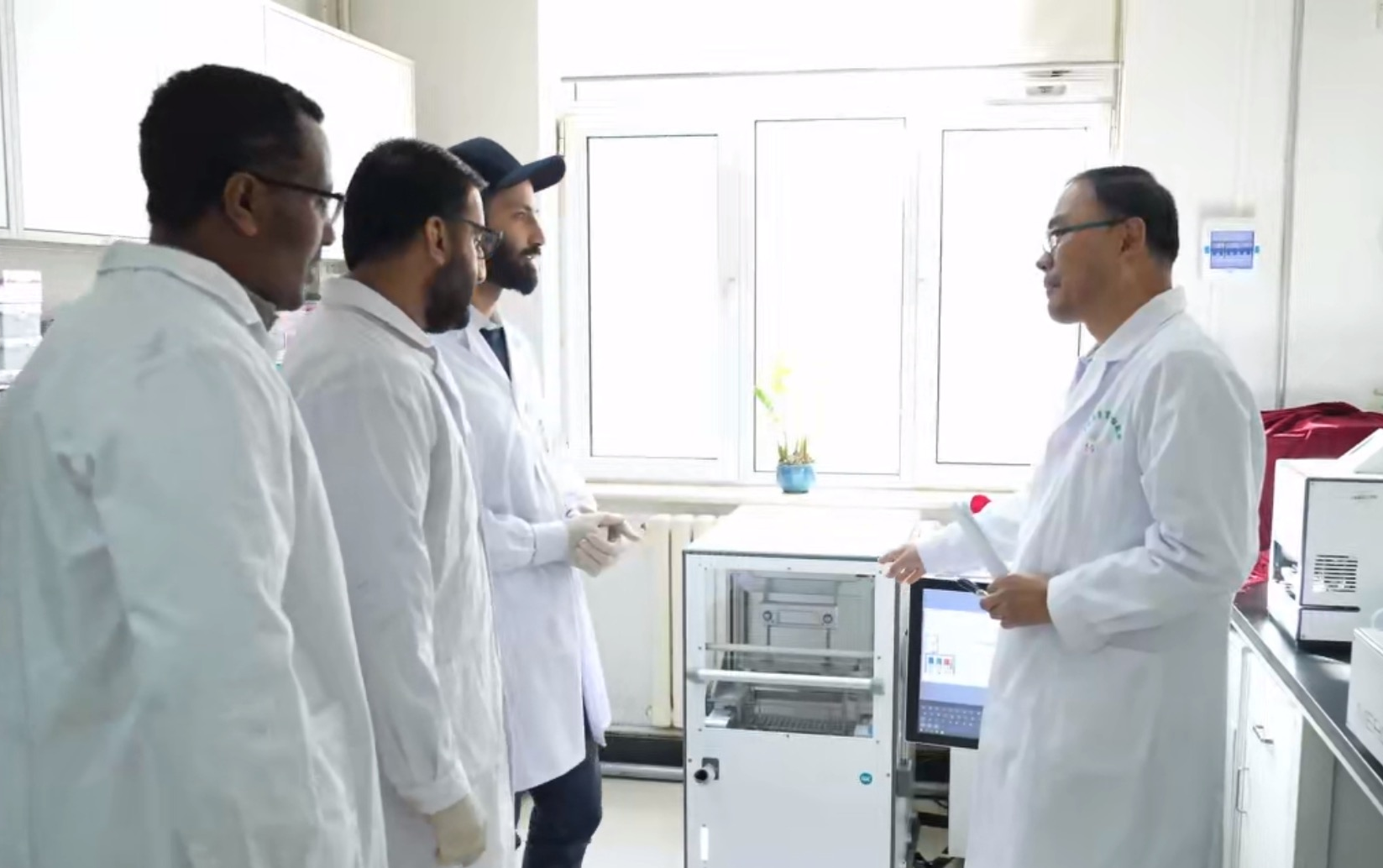Dialogue with Foreign Experts-Inclusive Hub of Global Agricultural Transformation

In recent years, China has become a global leader in agricultural research, playing an essential role in addressing worldwide challenges such as food security, climate change and sustainable farming.
This achievement is largely due to the country's open and inclusive approach to scientific research, where international collaboration is encouraged and deeply embedded in its culture. Through strategic partnerships and initiatives like the Belt and Road Initiative (BRI), China has created a cooperative research ecosystem that benefits local and international scholars.
Learning, leading and bridging
Dr. Hao Yuanfeng, a scientist from the Institute of Crop Sciences, Chinese Academy of Agricultural Sciences (CAAS), has witnessed firsthand how China's collaborations with global institutions and partners, such as the International Maize and Wheat Improvement Center (CIMMYT), have evolved over the years. As a former beneficiary of international collaborations during the early stages of his career, Hao now mentors a young generation of scientists who continue to benefit from these partnerships.
"For example, in our lab, we started working with CIMMYT in the 1980s. They shared germplasm and protocols for quality testing, which helped us develop our breeding pipeline for high-yielding and high-quality varieties," Hao explained. "This collaboration led to the release of varieties such as Zhongmai 578, a strong gluten wheat variety currently widely grown by farmers."
According to Hao, the calls for more international cooperation have become louder in the sci-tech community. He underscores China's role as a bridge between international organizations and developing countries, stating that China now shares its advancements with nations across the globe, helping them adopt modern breeding and production technologies.
A culture of openness and growth
One of the most significant aspects of China's research environment is its inclusivity. For Youshaa Danyal, a young researcher from Pakistan, China offers a dynamic and welcoming atmosphere that fosters both academic and personal growth.
His experience reflects the environment that China cultivates for international scholars, one that promotes collaboration, creativity and excellence. He noted the inspirational work of Chinese scientists, like Li Wenxue team's recent publication in Science magazine on the NAC gene marks a significant advancement in maize biofortification.
The open and inclusive nature of China's research ecosystem is clear in Danyal's daily work, as he collaborates with colleagues from around the world. "We are working together to tackle pressing agricultural challenges such as micronutrient deficiency," he said.
Muhammad Adeel Qureshi, a senior researcher from Pakistan, speaks highly of the organization and systematic approach to China's agricultural programs. He noted that China is a leading producer of wheat worldwide. "This high yields resulted due to the continuous efforts by the breeders and scientists across China. I'm honored to be part of the CAAS, where the breeding work is systematic and well organized," said Qureshi, adding that the research team of his lab has developed many molecular markers for different quality traits in Wheat.
For him, being part of such a well-organized environment has been both enriching and motivating. He noted that China focuses on international cooperation at both governmental and institutional levels, which is crucial for tackling global agricultural challenges. "China's policies on collaboration are reflected at both the governmental and individual levels, with a strong focus on international cooperation, especially in the scientific community," Qureshi said.
Connecting continents, empowering research
The BRI has proven to be a vital platform for expanding international collaboration in agriculture. Yirga Kindie Wasihun, a senior researcher from Ethiopia doing his PhD in wheat genetics and molecular breeding in CAAS, underscores the impact of this initiative on global agricultural cooperation. "The BRI has not only provided infrastructure but also opened doors for knowledge transfer, allowing us to bring back new technologies to our home countries," said Wasihun. Through the BRI, China is actively collaborating with partner countries, facilitating agricultural research and fostering capacity building. "China plays a leading role in uplifting the region's economies and ensuring sustainable development," said Wasihun.
Qureshi also recognizes the BRI's pivotal role in boosting agricultural collaboration. "The BRI has created numerous opportunities in infrastructure, science, technology and other fields," he said. "It has opened doors for international students and scientists, fostering collaboration and knowledge exchange."






